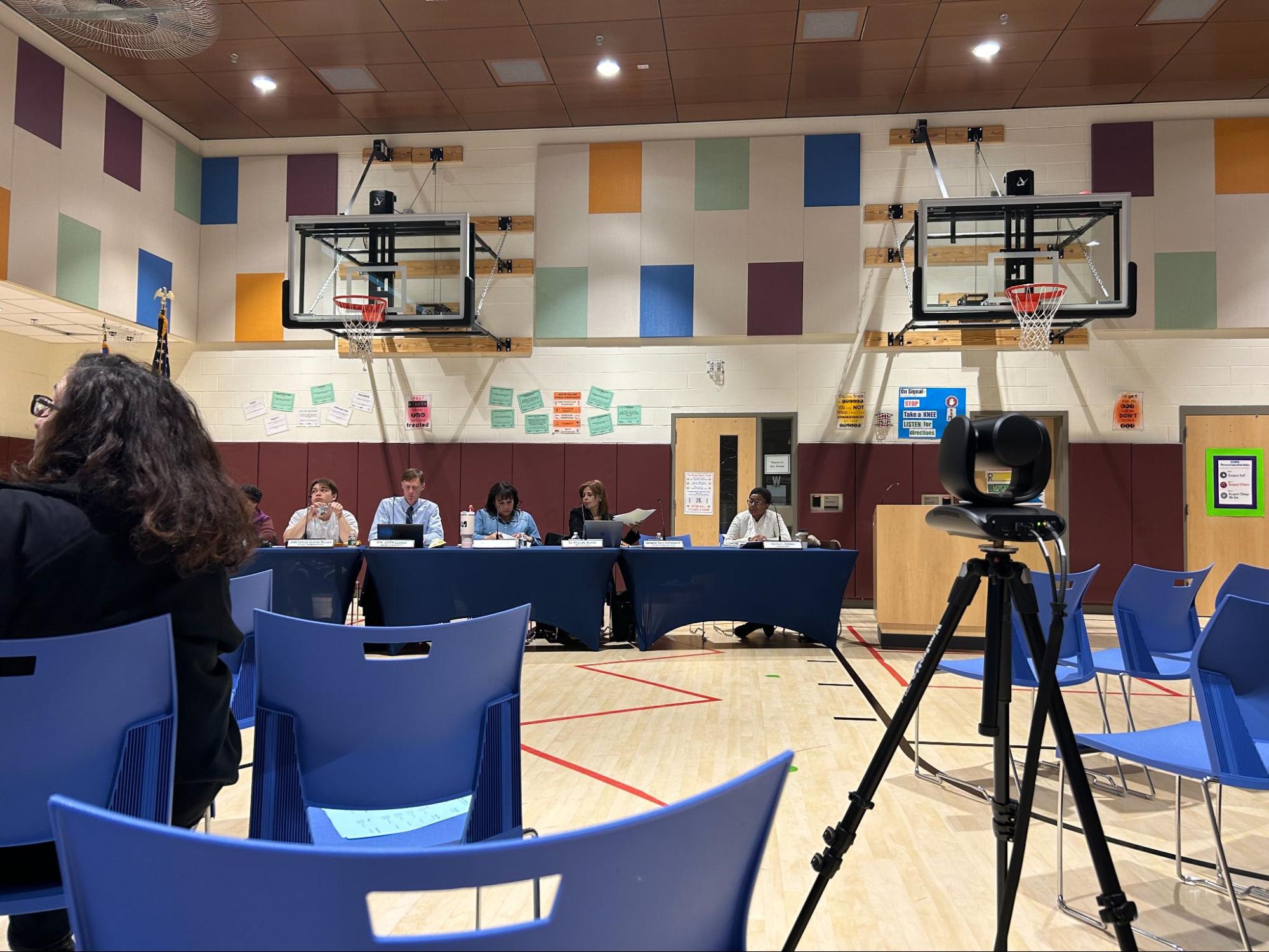Board of Education discusses multi-year improvement plan
The BOE also heard complaints, considered a new scheduling plan and discussed a plan to increase lingual accessibility.

Sofia Gaviria Partow, Contributing Photographer
New Haven’s Board of Education met on Jan. 22 to discuss topics ranging from student engagement in classes to the development of a multi-year improvement plan for New Haven Public Schools.
The Board met at the Barack Obama Magnet University School. In the first portion of the meeting, which allowed members of the public to voice concerns, part-time NHPS substitute teacher Abe Benghiat criticized the Board of Education for failing to raise teacher pay in accordance with Connecticut’s 2024 minimum wage increase from $15 per hour to $15.69.
“I am beyond disappointed to be speaking to you yet again on substitute teacher issues,” Benghiat said to the Board. “The human resources department and the city as a whole has failed one of the most vulnerable employee populations by not raising the wage appropriately or in compliance with the Connecticut State Law.”
After Benghiat called for a reevaluation of the system that allowed this alleged neglect, the meeting continued without comment from Board members.
Next on the agenda was the passage of proposals made by the Board’s Finance and Operations Committee earlier this month. These agreements included a partnership with a consulting group to ensure that NHPS meets the educational needs of its multilingual students and a decision to allocate a portion of school resources to trauma-informed counseling.
Funding for professional development training for teachers was also included in agreements passed at the meeting, with an emphasis on how to boost student engagement in the classroom and facilitating a shift to block scheduling. Block scheduling means an increase in the duration of each class from 40-50 minutes to around 90-100 minutes, according to Education Advanced. It would also mean a decrease in the number of times classes meet per week. Board and Committee members hope that this increase will allow space for more independent student exploration of course topics.
“There ought to be a time where students can pursue their own interests within the context of … the course you’re teaching,” Board Member Dr. Edward Joyner said. “The three most important variables in learning are interest, attention and memory.”
Allowing students more time during each class to pursue both required course material and their own related interests would boost both attention and memory in the classroom, Joyner added. NHPS lead librarian and union member Kim Rogers attended the meeting as a representative of Libraries for All, an organization that believes that each public school in New Haven deserves a librarian. Currently, she told the News, nine schools in the city have no librarians and 14 have just one part-time librarian shared between two schools. She connected this absence to New Haven children’s low reading scores.
Rogers echoed Joyner’s point about the necessity of increasing student interest in learning, adding that all NHPS teachers have topics or books that they are required to teach.
“That’s the work of reading and that’s fine,” Rogers said.“Having access to a librarian will allow them to have that interest … That’s the interest and that’s where the joy of reading comes from.”
Rogers also hoped that the agreements passed at the meeting would allow for better support of New Haven’s multilingual students.
“When we talk about serving all of our students, we … as a community, we are a sanctuary city, we are having people come here to be safe, to make a better life, because we find that important,” Rogers said. “But yet we haven’t been able to fully support that in our schools. That’s ’cause our schools are not fully funded.”
Another item on the meeting’s agenda was the development of a new strategic operating plan for NHPS. As described by Dr. Madeline Negrón, this multi-year plan would serve to advance student achievement at New Haven schools, relying on the exchange of ideas between the Board of Education’s subcommittees and the larger NHPS community of teachers, parents and students. While planning is already underway, community data collection will begin over the course of the next few weeks, with members of the public responding to surveys about what they believe needs to be changed within NHPS to further student achievement and development.
This process will wield the power of artificial intelligence for the collection and analysis of data, as well as to allow anyone, including non-English speakers, to communicate their thoughts on the school system. AI will immediately translate community responses from the language in which they are written to English, making the process more accessible.
During the meeting, Negrón paused to highlight New Haven’s Hillhouse High School graduate Constance Baker Motley, who had just been placed on the 47th Black Heritage Stamp by the US Postal Service for her contributions to Brown v. Board of Education.
“Great things have always happened at the New Haven Public Schools,” Negrón said. “That is why I continue to speak about getting us to strive toward the next chapter of excellence.”
NHPS has a budget of $207 million for the 2023-24 school year.







